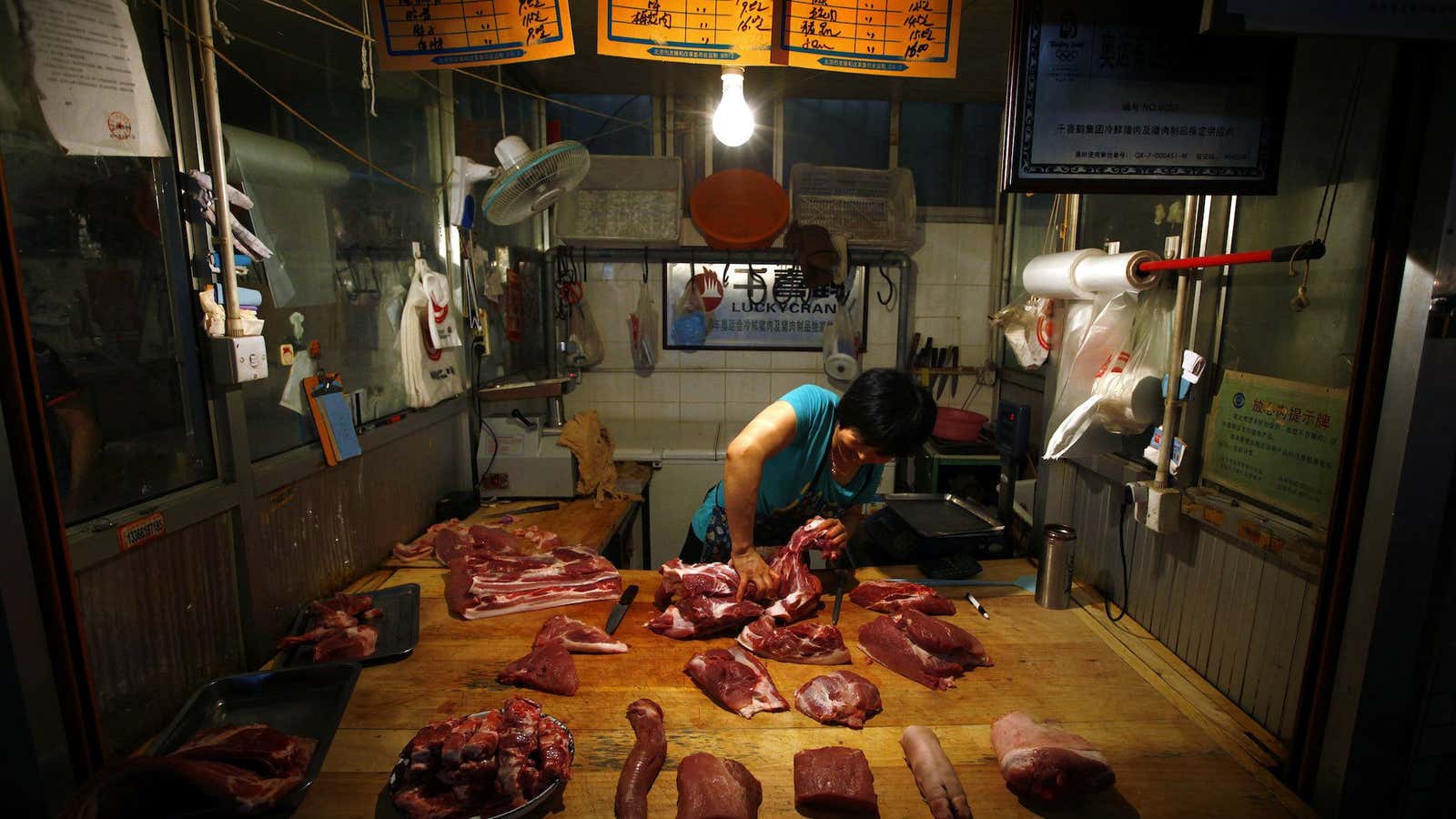In the latest food scandal to hit China, authorities have seized almost half a billion dollars worth of smuggled frozen meat, some of more than 40 years old. According to the state-run China Daily, customs officials have confiscated over 100,000 tonnes (110,000 tons) of chicken wings, beef, and pork, and arrested gangs across 14 Chinese provinces attempting to sell the contraband.
“It was smelly. There was a whole truck of it. I nearly threw up when I opened the door,” Zhang Tao, an official that helped with the operation in Hunan province told the paper. Some of the meat had begun to thaw and rot, and some of it was stamped with packaging dates as far back as the 1970s, officials said.
Meat smuggled in from foreign countries via Hong Kong and Vietnam is increasingly making its way into Chinese grocery stores, where consumers can’t tell the product’s age easily when it is frozen. The meat, transported in non-refrigerated trucks and cars, is often repeatedly thawed and refrozen. In Hong Kong, imported meat is subject to surveillance but not usually tested if it is for re-export, government officials said.
Ironically, the Chinese public’s growing concern about food safety has driven up demand for foreign meat. Shoppers prefer products from Europe, the United States, Australia, and New Zealand over locally raised animals. (China’s per capita meat consumption has tripled over the past thirty years.)
This demand, coupled with restrictions on meat imports (US beef is banned) has helped fuel meat smuggling in China. In just the past year, Chinese officials have arrested smugglers transporting meat from the US, Brazil, and Finland. In March, officials arrested smugglers attempting to transport $33 million worth of beef from the United States into the country. Last November, another group was detained for smuggling in 300 tonnes of Brazilian beef.
